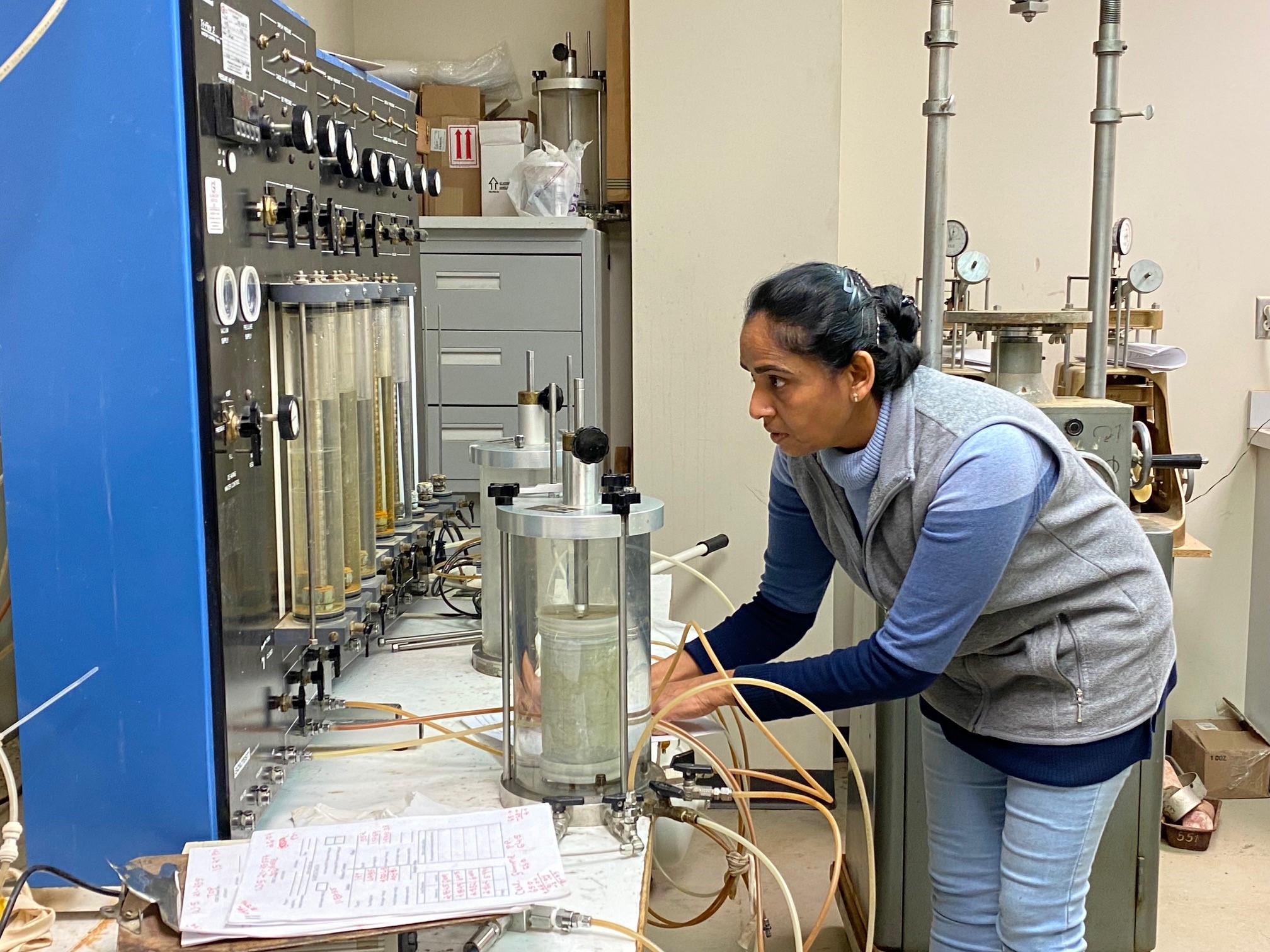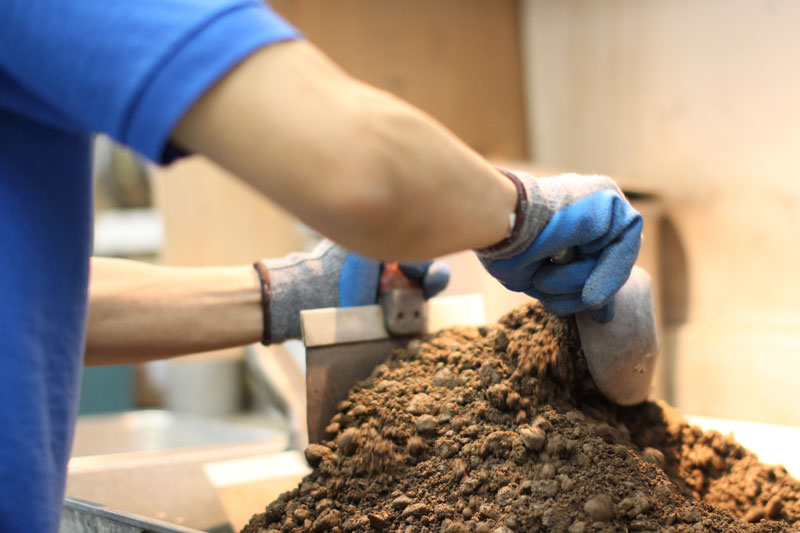Material Honesty Introduced: Accuracy and Precision with Material Testing Lab Evaluation
Wiki Article
From Raw Products to Last Products: The Function of Product Screening Laboratories in Ensuring High Quality and Reliability
Product testing labs play a critical function in this process, from evaluating raw materials to assessing the last items. By performing various tests, these laboratories make sure that the materials made use of meet industry criteria and comply with policies. From evaluating the toughness of steels to examining the composition of plastics, product screening laboratories offer valuable understandings to makers and aid them provide premium items.Importance of Material Testing in Quality Control

Among the key reasons that material testing is important for quality control is that it assists you identify whether the materials fulfill the needed requirements and requirements. Through rigorous testing, you can verify if the materials have the desired mechanical, chemical, and physical buildings. This ensures that your items will perform as desired and meet the expectations of your consumers.

On top of that, material testing assists you identify any prospective safety and security dangers related to your items. By evaluating for aspects such as flammability, toxicity, or electric conductivity, you can make certain that your products follow safety laws and standards. This not just protects your clients but also safeguards your online reputation and reduces the danger of responsibility.
Kinds Of Tests Conducted by Product Screening Laboratories
To make sure top quality and integrity, material screening labs conduct a variety of tests on resources and completed products. These examinations are vital in establishing the physical, mechanical, chemical, and electric buildings of the products present. One common examination is the tensile examination, which gauges the stamina and ductility of a product by subjecting it to tension up until it damages. Another important test is firmness testing, which analyzes the material's resistance to impression or scraping. Material testing laboratories additionally carry out influence tests to examine a material's ability to endure abrupt shock or influence forces. Furthermore, they do exhaustion tests to assess the product's durability and resistance to repeated loading. Thermal conductivity examinations are conducted to gauge how well a product carries out warm. In addition, product screening research laboratories perform rust examinations to figure out a material's resistance to deterioration created by chain reactions with its environment. Finally, non-destructive testing approaches such as radiographic or ultrasonic testing are employed to identify internal defects or issues without harming the material. By conducting these examinations, product testing laboratories make certain that the raw products and ended up items satisfy the needed standards and requirements, assuring top quality and integrity in different industries.Function of Material Screening in Ensuring Product Reliability
By examining the physical, mechanical, chemical, and electrical homes of materials, material testing makes certain the dependability of products. Via a collection of rigorous examinations, product testing laboratories are able to determine any kind of potential weak points or imperfections in the products utilized in the manufacturing process.
Material testing aids to determine whether the materials made use of in the production of a product satisfy the called for specs and criteria. It helps to recognize any issues or variances that might influence the efficiency or resilience of the end product. By subjecting materials to numerous tests, such as tensile stamina, firmness, rust resistance, or flammability, material screening makes certain that the products utilized are suitable for their desired application and can withstand the conditions they will be revealed to.
Moreover, material screening allows manufacturers to evaluate the efficiency and dependability of their products under different environmental problems. By imitating real-world situations, such as extreme temperatures, moisture, or resonances, material screening helps to recognize any kind of possible weak points or susceptabilities that can influence the item's efficiency or life-span. This permits makers to make essential enhancements or alterations to make sure that their items fulfill the highest requirements of top quality and integrity.
Market Requirements and Material Screening Conformity
Guaranteeing compliance with market requirements for material screening is critical in maintaining the high quality and reliability of products. These industry criteria act as guidelines that define the minimal needs and specifications for screening products used in various markets. By adhering to these standards, manufacturers can guarantee that their items meet the required top quality and security criteria.Material testing labs play a crucial function in making certain compliance with these industry criteria. These research laboratories are furnished with advanced equipment and utilize trained specialists that are skilled in the testing procedures needed for different products. They conduct a vast array of tests, such as mechanical, chemical, and physical examinations, to analyze the buildings and attributes of products.
Adhering to industry requirements assists makers meet customer expectations and regulative needs. It also aids in avoiding item failings and remembers, which can bring about monetary losses and damage to the credibility of the business. Additionally, adherence to these requirements advertises reasonable competition you can find out more among producers, as it makes certain that all items satisfy the same quality requirements.
Material testing compliance likewise plays a significant function in international profession. Lots of nations have learn this here now their very own collection of sector requirements, and conformity with these requirements is usually a prerequisite for importing and exporting products. By making sure compliance, producers can expand their market reach and develop themselves as relied on distributors in the international market.
Benefits of Partnering With a Product Screening Research Laboratory
When partnering with a material screening laboratory, you can gain from their competence and modern equipment to make certain the top quality and integrity of your products. One of the key advantages is the accessibility to specialized understanding and experience that these labs have. Material screening laboratories utilize extremely competent professionals that have substantial understanding of different products and screening approaches - material testing lab. They can provide useful insights and suggestions to optimize your product style and production procedures.
In addition, product testing labs have progressed equipment and technology that can properly analyze the residential properties and attributes of your materials. They can do a large range of examinations, including mechanical, chemical, and thermal tests, to examine the performance and resilience of your items. By partnering with a product screening lab, you can make sure that your products go beyond or meet market criteria and regulative needs.
An additional advantage of partnering with a product testing research laboratory why not try these out is the ability to determine and deal with prospective problems prior to they come to be significant troubles. Via thorough testing and evaluation, these labs can find any flaws, weaknesses, or disparities in your products. This enables you to make enlightened decisions and take rehabilitative actions to enhance the quality and dependability of your items.
Verdict
In conclusion, product testing labs play a vital role in making certain the high quality and reliability of final products. Partnering with a product testing research laboratory provides various benefits, including enhanced item efficiency, customer complete satisfaction, and compliance with policies.Product screening labs play an essential function in this process, from evaluating raw materials to evaluating the last products.To make sure top quality and integrity, material screening research laboratories carry out a selection of examinations on raw materials and ended up items. By performing these tests, product screening labs make sure that the raw materials and completed products satisfy the needed specs and standards, assuring top quality and reliability in different industries.
By subjecting products to different examinations, such as tensile stamina, solidity, corrosion resistance, or flammability, material screening makes certain that the products made use of are appropriate for their desired application and can withstand the conditions they will be exposed to. - material testing lab
Product screening labs use highly experienced professionals who have comprehensive understanding of different materials and screening methods.
Report this wiki page